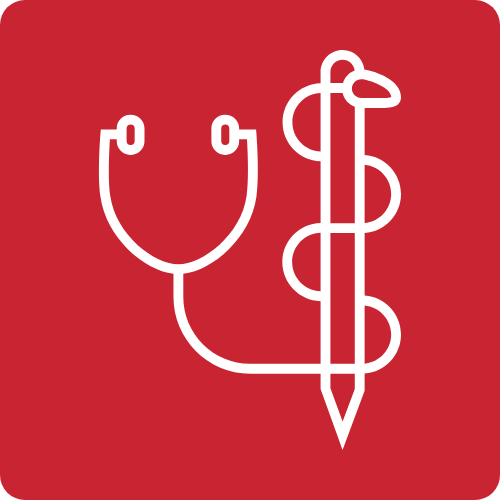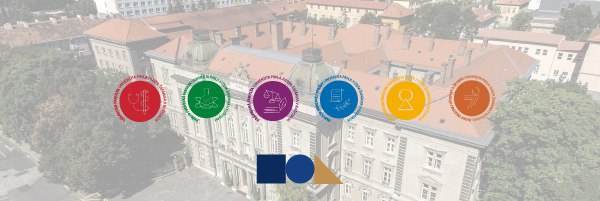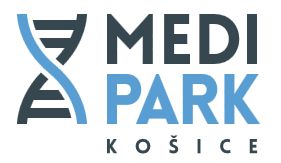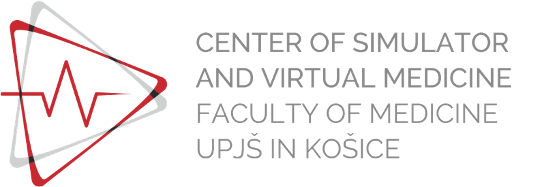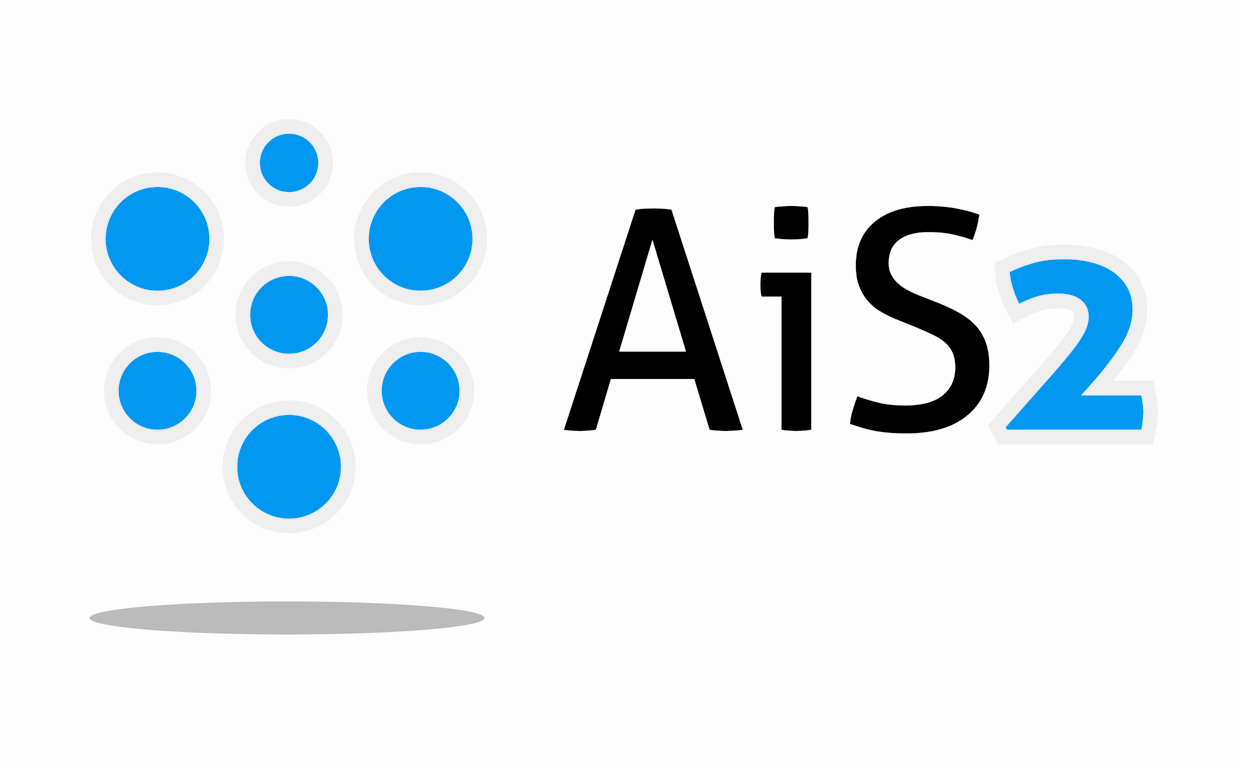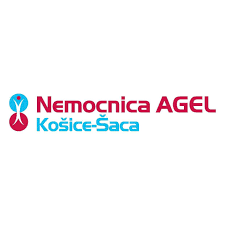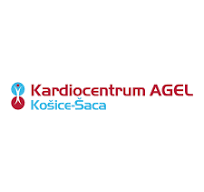The Faculty of Medicine trains physicians, surgeons and dentists with broader general medical education, capable of providing professional medical aid and care aimed at preventive aspects of medicine. Vocational training is based on the latest knowledge in medical science and students are given the possibility to achieve the background for scientific activity as well.
Foreign language study and moral ethical aspects in the education of personality are presented in the spirit of the Hippocratic oath and are included in the study. Students acquire specialized knowledge in theoretical, pre-clinical and clinical subjects through lectures, seminars clerkships, specialized practice and consultations.
The Faculty of Medicine has several significant partners Clinical Education Bases (e.g. the Louis Paster University Hospital in Košice and other medical facilities), where the faculty provides students with practice. As regards organisation, the faculty is divided into Theoretical Departments, Clinics, Specialised Education Units, Research and Experimental Units (SLOVACRIN, Associated Tissue Bank), Dedicated Units (Laboratory of Research Biomodels), Specialized Research Units (Center of Clinical and Preclinical Research MEDIPARK, Laboratory of Cell Interactions) and Center of Simulator and Virtual Medicine, which provide the activity of the faculty professionally.
The faculty of medicine graduates of study programs will acquire knowledge in accordance with “Standard education for the acquisition of professional competence to perform professional work in the medical professions doctor, dentist, pharmacist, nurse, midwife, physiotherapist, public health officer, medical laboratory assistant, dental hygienist, radiological technician, paramedic, dental technician, optometrist and nutritional therapist” (Annex No. 2 to Government Decree No. 296/2010 Coll., valid from 1.1.2021).
Knowledge
The graduate has extensive professional (eg anatomy, histology, physiology, biochemistry, pathology, pharmacology) and methodological knowledge from many areas of the field of study at the level of synthesis and evaluation. He/she understands the essential contexts, principles and theories of the field, performs basic diagnostic, therapeutic and preventive procedures. He/she finds and presents his/her own solutions to medical problems. The graduate can categorize theoretical knowledge about the morphology and function of individual organs and systems of healthy people, the mechanisms of change and course of change, including diseases, which allow him/her to correctly interpret and apply health promotion, prevention, diagnosis and treatment of diseases. The acquired knowledge allows him/her to think scientifically and further deepen his/her education in any specialization. He/she has communication skills and basics in the field of bioinformatics.
Skills
The graduate independently applies the basic methods of medical examination, analyses and diagnoses findings using basic instrumentation and basic laboratory and examination methods. He/she provides qualified assistance in life-threatening conditions, evaluates the impact of social factors and environmental conditions on the health of the population, the principles of prevention of infectious and non-infectious diseases and their application in practice, also applies the basics of assessing work ability for various diseases and injuries, basic legal standards necessary for demanding and responsible work of a doctor.
Competence
The graduate demonstrates a high degree of independence in working in a changing environment, demonstrates the ability to work effectively as an individual, member or team leader. He/she adheres to the ethical and humanitarian principles and the principles of medical psychology, which he/she follows in his/her professional activity throughout his/her life. The graduate uses the basics of scientific work methodology and has an innovative mindset. He/she has a high degree of independence and foresight in a known and unknown environment, he/she independently acquaints himself/herself with and analyses the latest knowledge presented in professional or scientific journals in a foreign language. The graduate evaluates the results of his/her own professional or scientific activities and presents them to a professional audience in a foreign language.
A graduate of the study program in general medicine has the knowledge, skills and competencies that entitle him/her to perform the medical profession – doctor whose preparation is the focus of the study program he/she has completed. The preparation for the profession is carried out in accordance with the relevant European and national legal standards.
Knowledge
The graduate has extensive knowledge at the level of evaluation based on scientific evidence and proven clinical experience in all areas of the field of study. He/she can evaluate extensive professional and methodological knowledge in the areas of theoretical and preclinical subjects and clinical disciplines of dentistry. He/she approaches to solving problems in the field of creation and promotion of health in general with a special focus on health and diseases of the oral cavity in connection with the integrity of the whole organism. Based on knowledge from biophysics, biochemistry, biology and genetics, the graduate analyses knowledge from histology, anatomy, physiology, which are the basis for understanding and application of functional relationships at the molecular, cellular and tissue level together with the influence of environmental factors on homeostasis of the human body. Respecting the protection of the patient’s health, he/she knows the biocompatibility of dental materials and optimally indicates them in taking care of the oral cavity.
Skills
The graduate demonstrates preventive, diagnostic and dental procedures in the range of services at the level of a general dentist. He/she applies basic pharmacological treatment, defines the relationship between the impact of general diseases on oral health and the risk of oral diseases on general health. Based on the anamnesis and a comprehensive diagnostic examination, he/she identifies and analyses the causes of the disease, determines the diagnosis and a comprehensive treatment plan for diseases of the oral cavity. He/she implements the principles of primary prevention, especially of tooth decay and periodontal diseases, according to individual age groups. He/she manages the principles of early diagnosis of dental caries, periodontal diseases, anomalies and tumours of the oral cavity and facial area with an indication of their solution. The graduate has the knowledge and necessary manual skills for independent performance in the oral cavity of an individual. He/she applies the principles of promoting high standards of effectively oriented and safe patient care, based on the principles of dentist ethics.
Competence
The graduate demonstrates a high degree of independence in solving problems and projects in the field of study in a changing environment, respecting the development of new technologies and materials, the morbidity of the population and the aging of the population. He/she establishes, implements and manages dental practice, works with information technology, in accordance with the principles of administration and legal regulations concerning the practice of dental practice. He/she has an innovative mindset and is ready to professionally present the results of his/her own analysis and study to a professional audience, even in a foreign language.
A graduate of the study program in dentistry has the knowledge, skills and competencies that entitle him/her to perform the medical profession – dentist, for the preparation of which the study program he/she has completed is focused. The preparation for the profession is carried out in accordance with the relevant European and national legal standards.
The faculty of medicine graduates of study programs will acquire knowledge in accordance with “Standard education for the acquisition of professional competence to perform professional work in the medical professions doctor, dentist, pharmacist, nurse, midwife, physiotherapist, public health officer, medical laboratory assistant, dental hygienist, radiological technician, paramedic, dental technician, optometrist and nutritional therapist” (Annex No. 2 to Government Decree No. 296/2010 Coll., valid from 1.1.2021).
Knowledge
The first-degree graduate of the physiotherapy study program is a qualified university health worker with a broad professional profile who has knowledge of legal regulations and uses professional terminology. He/she is able to process and evaluate the data he/she obtains in the exercise of the medical profession. He/she has communication skills and knowledge in the field of psychology and ethics. The graduate masters the basic examination and treatment procedures and methods in physiotherapy.
Skills
The graduate has practical skills and methodological knowledge in a key area of the field of physiotherapy at the level of synthesis, which serve as a basis for practice and research. He/she performs techniques, methodologies, physiotherapeutic procedures and procedures, basic balneological methods, hydrotherapy, occupational therapy, electrotherapy, kinesiology and counselling and educational activities. The graduate has the ability to present problems and his/her solutions to various types of students. He/she works effectively as a team member and manages the team at an appropriate level of management. He/she is able to process and evaluate the data he/she obtains in the exercise of the profession.
Competence
He/she is prepared to independently perform activities requiring professional erudition, independence at work, in decision-making, personal responsibility in medical rehabilitation, in prevention, in primary, secondary, tertiary and quaternary and subsequent health care. The graduate identifies and applies the moral, social, legal and economic contexts of the union, independently designs and implements solutions to methodological, professional or practical problems in the profession of physiotherapist.
The graduate has the knowledge, skills and competencies that entitle him/her to perform the medical profession – physiotherapist for the preparation of which is focused on the study program he/she completed. The preparation for the profession is carried out in accordance with the relevant European and national legal standards.
Knowledge
The graduate of the study program of laboratory examination methods in healthcare at the time of completion of the study program acquires adequate knowledge:
- from biochemistry, physiology and pathology of man, which allow to understand the function and metabolism of the organism in health and disease,
- on the rules for the proper material withdrawal, registration, receipt, processing, storage and disposal of biological material of various kinds,
- on the principles of individual laboratory tests,
- has knowledge of legislation and uses technical terminology,
- on the procedure of laboratory tests according to standard analytical methods and on the physiological values of specified parameters,
- in the field of psychology and ethics.
Skills
The graduate has practical skills and methodological knowledge in a key area of the field at the level of synthesis, which serve as a basis for practice and research. He/she will acquire professional competence for independent performance of professional work activities in laboratory examination methods and educational, upbringing and research activities, which correspond to the content and scope of the acquired education. He/she acquires skills and clinical experience in joint examination and diagnostic units under the professional supervision of medical laboratory technicians or doctors professionally qualified to perform specialized work activities in the relevant specialization field. He/she is able to process and evaluate data obtained during the performance of a medical laboratory technician. He/she has communication skills, designs and implements solutions to methodological, professional or practical problems in the profession.
Competence
The graduate is able and authorized to independently perform a range of activities in the profession, which are given by the chosen completed study program. The acquired qualification is in accordance with the sector-specific requirements for the performance of the profession. The graduate has the ability to present problems and their solutions, work effectively as a member of the team and manage the team at an appropriate level of management. He/she identifies and applies the moral, social, legal and economic contexts of the union.
The graduate has the knowledge, skills and competencies that entitle him/her to perform the medical profession – a medical laboratory assistant, for the preparation of which the study program he/she has completed is focused. The preparation for the profession is carried out in accordance with the relevant European and national legal standards.
Knowledge
The graduate will acquire general knowledge at the level of analysis and synthesis from the field of study, which integrates the knowledge of nursing science, biomedical sciences, behavioural, social sciences and human sciences. From the relevant scientific disciplines, he/she identifies the basic conceptual apparatus by which he/she describes the organs and systems of a healthy and sick person in terms of anatomical, physiological, pathophysiological and clinical, dealing with his/her mental processes and characteristics, social and cultural environment, as well as his/her spirituality, faith and worldview. The graduate draws conclusions and connections between them in the context of nursing care. He/she explains the legal and ethical standards needed to practice the nursing profession.
Skills
The graduate will acquire professional competence to perform professional work activities. He/she modifies general and professional knowledge in solving specific professional problems and applies procedures, methods and means in accordance with the standards and norms of the profession. By applying the method of nursing and educational process, he/she maintains and supports the optimal health status of the individual, family, community and population in life situations requiring comprehensive nursing care. He/she gains his/her active participation in the process of maintaining and promoting health, treatment and care during illness and death. The graduate provides care in a holistic way and preserves human dignity. He/she applies evidence-based professional nursing practice. He/she continuously develops his/her clinical and communication skills, uses information technology in nursing practice, analyses and solves ethical problems at the level of mastering the theoretical foundations of the field of study, the basic knowledge of partial disciplines belonging to these areas. The graduate is characterized by independence in solving specific problems in assessing the needs of patients, planning, providing and documenting nursing care. He/she is characterized by autonomy and responsibility in carrying out comprehensive and systematic assessments and using tools appropriate to individuals, families and communities, taking into account relevant physical, social, cultural, psychological, spiritual and environmental factors. He/she realizes that the quality of life and well-being of an individual is achieved through the combined resources and activities of all team members. The graduate effectively, independently and critically evaluates the need for nursing care in the changing environment of outpatient and inpatient health care and in mutual cooperation with other health professionals. He/she ensures his/her quality in accordance with legal regulations, ethical principles and patients’ rights. He/she practices the principles of health and safety at work. When providing care, he/she works independently within the scope of his/her competencies, adheres to standards and procedures in nursing services, and rules of safe care. The graduate adheres to the organizational aspects of working in an interdisciplinary team.
Competence
Based on analytical, critical and conceptual thinking, the graduate identifies and practically solves professional problems in nursing practice. He/she has the ability to appropriately and professionally present his/her own opinions, which are supported by creative, flexible and critical thinking. The graduate presents the basics of scientific work in the field and methods of obtaining scientific and professional information.
The graduate has the knowledge, skills and competencies that entitle him/her to practice the medical profession – nurse. The preparation for the profession is carried out in accordance with the relevant European and national legal standards.
The graduate of public health (1st degree) has theoretical knowledge and practical skills in general and preventive medical disciplines, which will be used in health promotion and protection, disease prevention, education and motivation for a healthy lifestyle of individuals, families, communities and the whole society.
Knowledge
Graduate:
- has basic knowledge of biomedical and clinical fields, nursing and professional terminology, justifies the defined nursing, preventive, diagnostic and therapeutic methods and procedures,
- master’s legislation, planning and management in public health, health, social and environmental policy management,
- has knowledge of psychology and sociology, professional principles and ways of communication in professional activities,
- masters the principles of medical ethics,
- masters the basics of informatics, statistics and scientific work in his/her field, masters the methods of obtaining scientific and professional information,
- masters a foreign language at a level that will enable him/her to orientate himself in foreign professional literature.
Skills
Graduate:
- applies knowledge of epidemiology and hygiene with emphasis on understanding the synthesis of the unity of the organism and the environment in health and disease, controls the collection, processing and evaluation of the results of hygienic-epidemiological activities and studies,
- applies the basics of health informatics and statistics in practice and research,
- justifies the defined nursing, preventive, diagnostic and therapeutic methods and procedures,
- justifies and applies the use of epidemiological methods, methods of process protection and health promotion from legislation in field practice,
- interprets and subsequently applies legislation, planning and management in public health, management of health, social and environmental policy,
- proposes the process, methods, forms and means of health education aimed at shaping a healthy lifestyle,
- participates in solving problems of nosocomial infections, disinfection and sterilization, resistance to ATB in hospital facilities and in the community,
- is able to organize his/her own education and research, maintains contact with new knowledge in his/her field and continues in his own professional development.
Competence
After completing the first degree, the public health graduate has the competence to:
- implementation of state health supervision in the field of living and working environment, protection of health at work, creation and protection of healthy living and working conditions of children and youth, at workplaces with sources of ionizing radiation,
- carrying out epidemiological surveillance of infectious and chronic diseases and the resulting professional activities,
- carrying out activities in accordance with the principles and concept of the state health policy and participating in the fulfilment of the objectives of health promotion programs and health education projects,
- designing and implementing basic measures that contribute to the quality and safety of the patient and the healthcare worker,
- work with data, their storage and basic statistical analysis with subsequent professional interpretation,
- permanent acquisition of the latest knowledge, which he/she actively transfers to practice.
The graduate of the study program is independent in the performance of his/her profession and takes into account modern trends in theory and practice in public health. The graduate has the knowledge, skills and competencies that entitle him/her to perform the medical profession – public health professional. The preparation for the profession is carried out in accordance with the relevant European and national legal standards.
The faculty of medicine graduates of study programs will acquire knowledge in accordance with “Standard education for the acquisition of professional competence to perform professional work in the medical professions doctor, dentist, pharmacist, nurse, midwife, physiotherapist, public health officer, medical laboratory assistant, dental hygienist, radiological technician, paramedic, dental technician, optometrist and nutritional therapist” (Annex No. 2 to Government Decree No. 296/2010 Coll., valid from 1.1.2021).
Knowledge
The graduate has extensive professional and methodological knowledge from several areas of the field of study at the evaluation level. He/she defines the essential context, principles and theories of the department of health science, with the application in the process of health care and management, social and health policy of the state. The graduate has at his/her disposal and appropriately uses knowledge from the interdisciplinary disciplines of psychology, physics, biochemistry, biotechnology, biology, ethics and communication. He/she has basic knowledge of bioinformatics and statistics, which he uses in decision-making processes and in keeping medical records.
Skills
The graduate is a qualified medical professional who masters examination, treatment procedures and methods. He/she performs highly specialized techniques, methodologies, physiotherapeutic procedures and procedures, demanding physiotherapeutic and balneological methods, hydrotherapy, occupational therapy, electrotherapy, kinesiology. He/she can carry out pedagogical activities at the appropriate levels of education in the field. He/she adheres to the ethical principles of his/her profession. He/she has an innovative mindset and is ready to professionally present the results of his/her work to a professional audience, even in a foreign language. The graduate demonstrates a high degree of independence in working and communicating in a changing environment, at the same time he/she has the ability to work effectively as an individual, member or team leader.
Competence
Graduate of the 2nd degree study program physiotherapy is ready to independently perform activities requiring professional erudition, independence at work, in decision-making, personal responsibility in medical rehabilitation, primary, secondary and follow-up health care, preventive, diagnostic, therapeutic, counselling and educational activities. He/she has the prerequisites for independent scientific research and methodological and organizational work in the field and creatively participates in its development. He/she can work creatively in a team and has the appropriate management skills.
The graduate has the knowledge, skills and competencies that entitle him to practice the medical profession – physiotherapist. The preparation for the profession is carried out in accordance with the relevant European and national legal standards.
The public health graduate (2nd degree of study) has the theoretical knowledge and practical skills needed to work in the public and private sectors in the field of development, support and health protection, in planning activities with an impact on health and in health administration.
Knowledge
Graduate:
- has knowledge in the field of support and protection of health of the individual and society, has basic knowledge of biomedical and clinical disciplines, nursing and professional terminology,
- has knowledge in clinical epidemiology, evidence-based medicine,
- has knowledge in the field of science, communicates at a professional level in his/her field, masters a foreign language at a level that will enable orientation in foreign professional literature, is able to organize his/her own education and research,
- masters the basics of scientific work in his/her field and masters the methods of obtaining scientific and professional information,
- master’s legislation, planning and management in public health, health, social and environmental policy management,
- has knowledge in the field of promotion and health protection of the individual and society.
Skills
Public Health graduate:
- applies legislation, planning and management in public health, health, social and environmental policy management,
- evaluates health indicators and subsequently proposes solutions for improvement, objectifies physical, chemical and biological factors of the living and working environment,
- defines and adheres to medical ethics, the basics of methodology in practice and research and medical informatics and statistics, justifies the defined nursing, preventive, diagnostic and therapeutic methods and procedures,
- performs quality management and human resources management,
- defines and analyses the issue of nosocomial infections, disinfection and sterilization, resistance to ATB in the hospital and in the community,
- assesses and evaluates the risks and health needs of the community (workplace, businesses),
- has knowledge in the field of science, analyses and interprets statistical data, can use statistical data processing at the univariant, bivariant and multivariant level,
- communicates at a professional level in his/her field, masters a foreign language at a level that will enable orientation in foreign professional literature, is able to organize his own education and research,
- is able to permanently acquire the latest knowledge, further education and actively transfer the acquired knowledge into practice,
- masters the basics of scientific work in his/her field and masters the methods of obtaining scientific and professional information,
- discusses and presents in various ways professional problems and their solutions, is able to understand and explain the quantitative dimensions of the problem,
- gets acquainted with new knowledge in his/her field and continues in his/her own professional development,
- discusses and presents professional problems and their solutions in various ways.
Competence
The Public Health graduate has competencies in:
- implementation of state health supervision in the field of living and working environment, protection of health at work, creation and protection of healthy living and working conditions of children and youth, at workplaces with sources of ionizing radiation,
- carrying out epidemiological surveillance and the resulting professional activities,
- carrying out activities in accordance with the principles and concept of the state health policy and participating in the fulfilment of the objectives of health promotion programs and health education projects,
- planning of health impact activities,
- performing expert activities, analyses of the health status of the population and the causes of its changes, counselling,
- performing medical administration,
- leading processes of continuous improvement of the quality of provided services in healthcare,
- support for education and research.
A graduate of the public health study program has the knowledge, skills and competencies that entitle him/her to perform the medical profession – a public health professional, for the preparation of which the study program he/she has completed is focused. The preparation for the profession is carried out in accordance with the relevant European and national legal standards.
